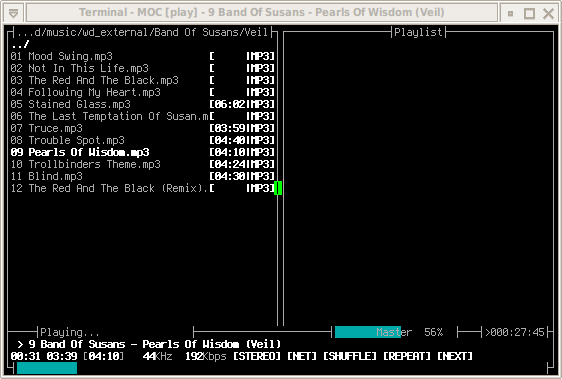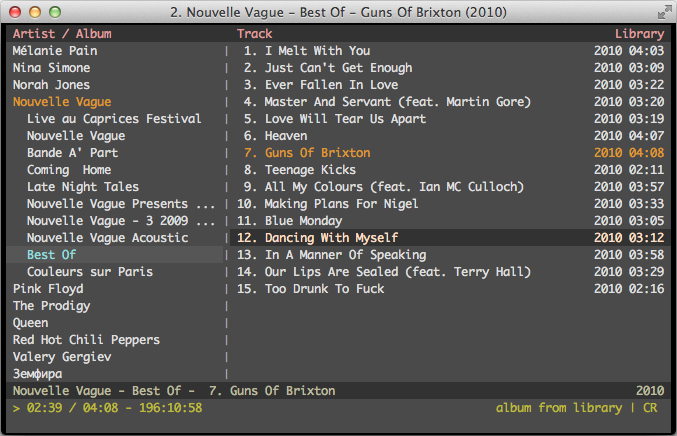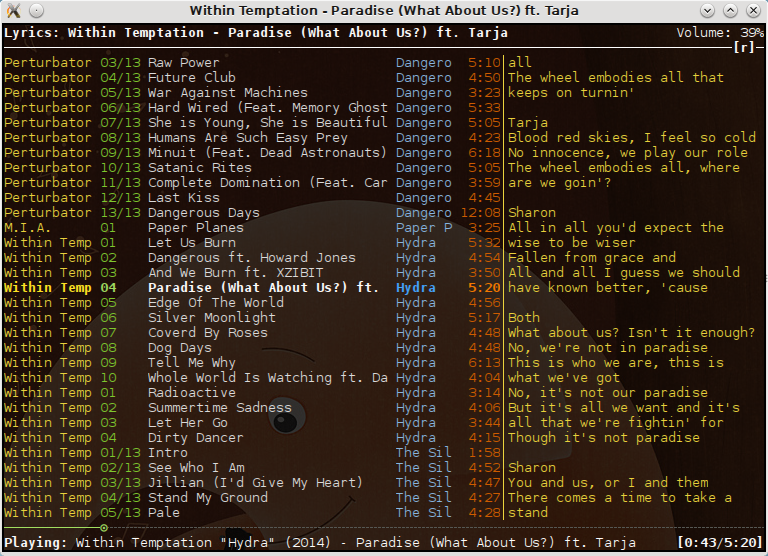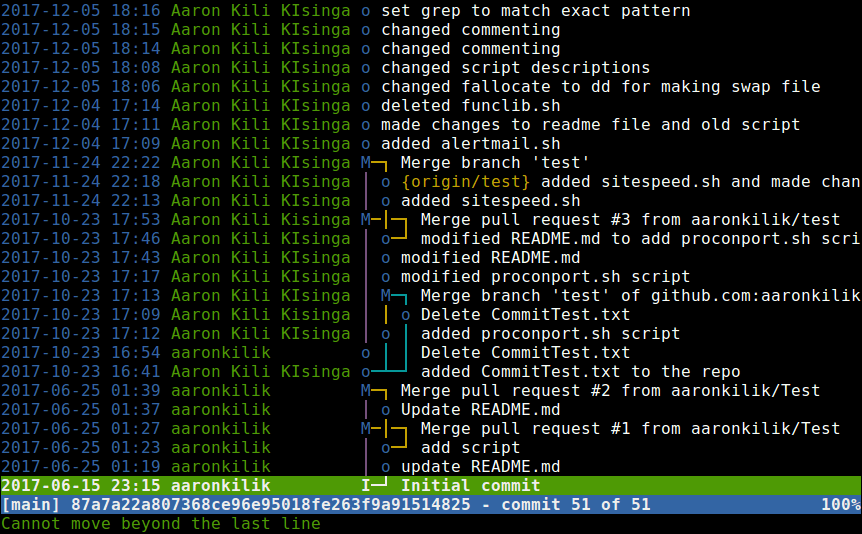131 private links
One of the most popular video/audio players around; plays most audio and video formats (using ASCII characters) in the shell; provides a GUI for graphical visualization.
Lightweight graphical PDF visualizer; strong key-based control; fast and accurate rendering.
"X11 image viewer aimed mostly at console users" (cit.); with no fancy GUI, it is controlled via commandline arguments and configurable key/mouse actions.
A library and a program to display JPG, PNG, GIF or BMP images in the terminal using ASCII characters.
Quick ogg sound file player; no visual interface, just a command-line audio file player for the free and open ogg file format.
A curses player for music tracks from Youtube; it allows to search for songs and playlists; it downloads the video, extracts the audio track and plays it; handles local playlists and many configuration parameters.
Quick mp3 sound file player; no visual interface, just a command-line audio file player for mp3 files.
A powerful and easy to use console audio player; user interface a la Midnight Commander; plenty of features; fully controllable from the keyboard.

Image source: Wikipedia
A fast and lightweight audio player with configurable keybindings and playlist support.

ALSA mixer with curses interfaces.
eSpeak is a compact open source software speech synthesizer for English and other languages, for Linux and Windows. http://espeak.sourceforge.net
eSpeak uses a "formant synthesis" method. This allows many languages to be provided in a small size. The speech is clear, and can be used at high speeds, but is not as natural or smooth as larger synthesizers which are based on human speech recordings.
Featureful ncurses based MPD client inspired by ncmpc. Relevant features: tag editor, playlist editor, easy to use search engine, media library, music visualizer, ability to fetch artist info from last.fm, new display mode, alternative user interface, ability to browse and add files from outside of MPD music directory.
Main features:
- tag editor
- playlist editor
- easy to use search engine
- media library
- music visualizer
- ability to fetch artist info from last.fm
- new display mode
- alternative user interface
- ability to browse and add files from outside of MPD music directory

A simple CLI tool to capture screenshots.
Software suite to create, edit, compose, or convert bitmap images; it handles many file formats (including PDF and SVG) and provides processing tools to "resize, flip, mirror, rotate, distort, shear and transform images, adjust image colors, apply various special effects, or draw text, lines, polygons, ellipses and Bézier curves".
A Unix terminal recorder written in Python that renders your command line sessions as standalone SVG animations.
An ncurses-based text-mode interface for git that can act as a repository browser, but can also assist in staging changes for commit at chunk level.

Free, distributed source control management tool.
"Local git statistics including GitHub-like contributions calendars."
The winner across all the existing file versioning tools; distributed versioning; fully controllable from the command-line; plenty of configuration and usage options; behind a number of related project that leverage git as a back-end.
Locally mount a remote file-system through SSH and access files and directory as they would be on the local machine.
